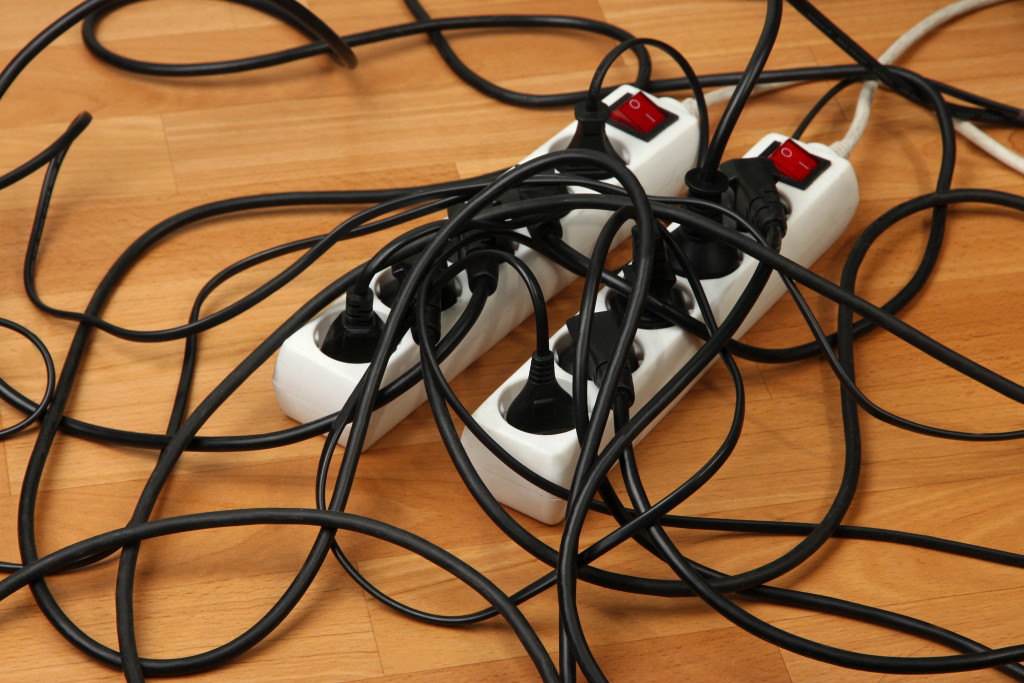A home is often a place of comfort and refuge, a safe space where we can relax and rejuvenate. And while it certainly can be that, it’s important to remember that homes can also be dangerous. Several home-related risks and hazards include fire, carbon monoxide poisoning, falls, and injuries from household appliances. External forces like severe weather can also threaten people’s safety.
While it’s essential to be aware of the risks associated with homes, it’s also important to remember that they can be safe places to live. By taking simple precautions and being mindful of potential hazards, homeowners can help ensure that their home is comfortable and functional. Here are a few to be wary about as a homeowner.
Fire

According to the National Fire Protection Association, an estimated 350,000 house fires are in the United States each year. Here are a few things to keep in mind to help keep your home safe.
Homes need to have smoke detectors installed in the house. Smoke detectors are one of the most important safety devices in a home, yet according to the NFPA, about 70% of fire-related deaths at home resulted from fires in homes with no working smoke alarms. Install smoke detectors on every home floor and within the proximity of all sleeping areas. Test them monthly and replace the batteries at least once a year.
You must also keep flammable items away from heat sources. It would help if you kept newspapers, magazines, lint, and clothing at least three feet away from heaters, stoves, and fireplaces.
Keep an eye out for electrical hazards. Things like overloaded outlets and frayed or damaged cords can cause fires. If you see any threats, have them repaired by a professional immediately.
Carbon Monoxide
While most people know the dangers of carbon monoxide poisoning, it’s important to remember that it is a real threat. Carbon monoxide is an odorless, colorless gas produced by anything that burns fuel, such as furnaces, water heaters, dryers, and fireplaces. When inhaled, it can cause serious health problems, including death.
Install a carbon monoxide detector in your home to protect yourself and your family from carbon monoxide poisoning. Place it near your home’s sleeping areas so you can hear it if it goes off. Test the batteries every month and replace them as needed.
Gas is also a common source of carbon monoxide poisoning. If you have a gas stove, open the windows when cooking and never leave the house with the furnace turned on. You can also get a gas safety certificate assessment done by a professional to ensure your home is safe. Fortunately, you can get the service online to ensure safety against carbon monoxide poisoning.
If you suspect that there may be carbon monoxide in your home, you can open doors and windows to ventilate the area and call emergency services immediately.
Falls
Falls are one of the leading causes of injuries in the home, especially for seniors. According to the Centers for Disease Control and Prevention, one in four adults aged 65 years or older falls annually.
You can do a few things to help prevent falls in your home. First, make sure that all areas are well-lit. This step will help you see potential hazards before they become a problem.
Second, keep your home clean and free of clutter. Clutter can be a trip hazard, so tidy up regularly. Decluttering can also help you see potential risks that you might otherwise miss.
Third, make sure that all flooring is in good condition. Repair any cracked or uneven surfaces to help prevent trips and falls.
Fourth, install grab bars in your bathroom and other areas where you may need them. Grab bars can help you maintain your balance and avoid falls.
Last, wear shoes inside the house. Shoes with good treads will help you stay steady on your feet and avoid slips and falls.
Electrocution
Another danger in the home is electrocution. According to the U.S. Consumer Product Safety Commission, about 4,000 people get electrocuted each year.
You can help prevent electrocutions by following a few simple safety tips:
- Never use electrical appliances while standing in water.
- Always unplug electrical appliances before cleaning them.
- Don’t overload outlets or extension cords.
- Keep electrical cords away from heat sources and out of high traffic areas where they could be damaged.
Last, have any electrical work done by a licensed electrician. This tip is essential if you’re planning on doing any major renovations or if you live in an older home with outdated wiring.
Key Takeaways
There are a few dangers to be aware of in the home. These include fires, carbon monoxide poisoning, falls, and electrocutions. You can help prevent these risks by taking simple precautions, such as keeping your home clean and well-lit, maintaining flooring, and using electrical appliances safely. If you have any concerns about safety in your home, consult a professional.

